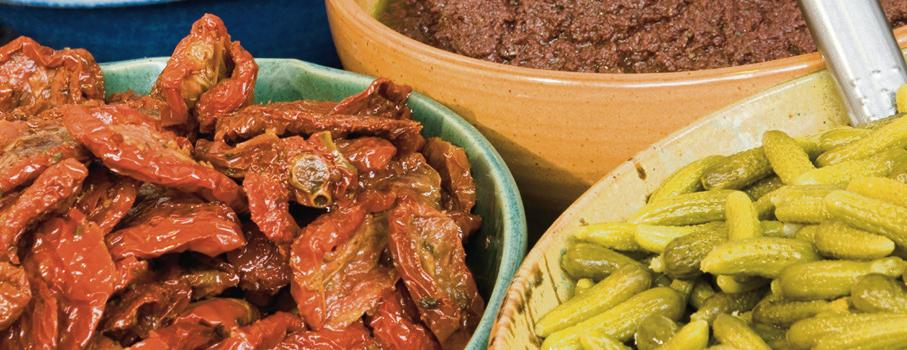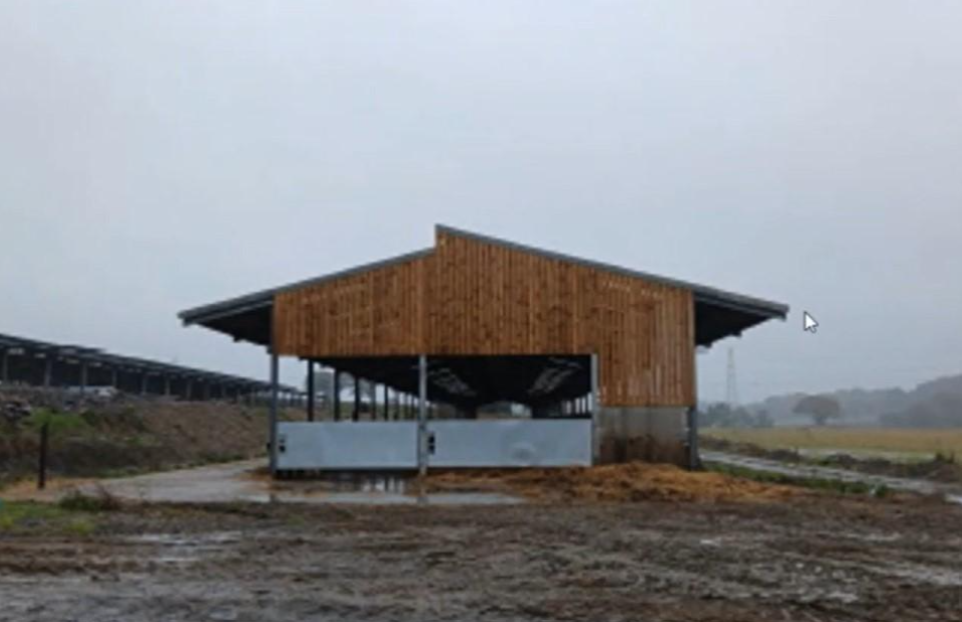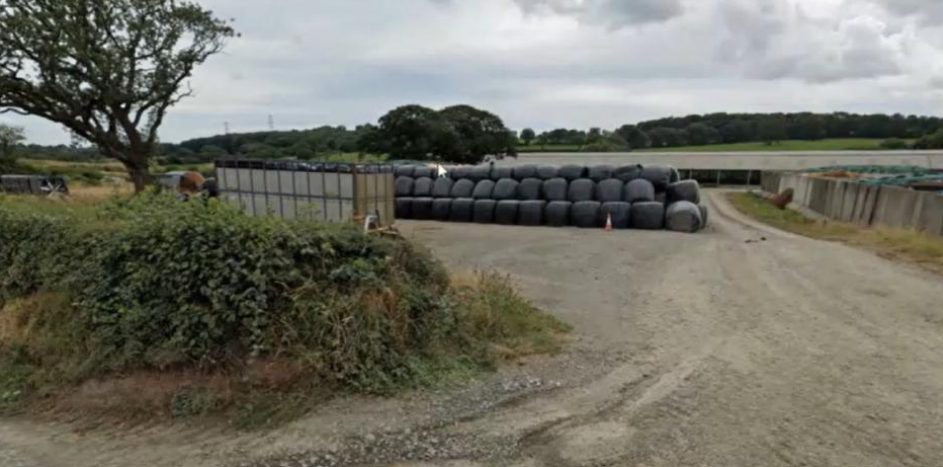Farming
A plan of action for Welsh food and drink

 A NEW action plan setting out how the Welsh Government will help Wales’s food and drink industry grow by 30 percent to £7 billion by 2020 was launched on Thursday, June 12, by Alun Davies, the Minister for Natural Resources and Food.
A NEW action plan setting out how the Welsh Government will help Wales’s food and drink industry grow by 30 percent to £7 billion by 2020 was launched on Thursday, June 12, by Alun Davies, the Minister for Natural Resources and Food.
Wales’s food and farming industry is already a significant contributor to the Welsh economy and accounts for £5.2bn turnover, 45,000 jobs and £1.3bn Gross Value Added (GVA) in Wales. Towards Sustainable Growth: An Action Plan for the Food and Drink Industry 2014 – 2020 recognises the importance of the sector and lists 48 actions that will deliver greater profitability, growth and jobs. All actions are time-specific and will be measured against outcomes. They include: * Creating a Food & Drink Wales Industry Board to provide leadership and a voice for the industry * Developing the new Food & Drink Wales/ Bwyd a Diod Cymru identity for food and drink to emphasise Welsh provenance and promote trade and market development * Focusing on training to create a skilled and capable workforce throughout the food chain The Minister will address around 150 food businesses, farming unions, university representatives and key players from the UK’s food and drink industry in Cardiff later today and will set out how the plan will help achieve sustainable growth and a profitable future for the sector. Alun Davies said: “This is a very exciting time to be involved in the Welsh food and drink industry – we are progressing well, but we must do more to achieve our ambitious targeting of increasing the turnover of the food and drink sector by 30 percent over the next seven years. “In producing this plan we have listened to feedback from the industry and have worked to provide the support it needs to thrive – whether that be better research, administration support, help identifying market opportunities, business advice or financial investment. “This plan is not a high level strategy, it is completely focused on delivery. For it to be a success, the plan must be delivered in partnership between the industry and Government – with the new Food and Drink Industry Board representing the voice of the industry and providing clear, strong leadership.” The Minister is inviting nominations from the industry for the position of Chair of the Board and will announce this appointment at the Royal Welsh Show in July. Other speakers at the launch event included Tara McCarthy, Food & Beverages Director of Bord Bia (Irish Food Board) and James Withers, Chief Executive of Scotland Food and Drink, who will talk about their experiences of implementing food and drink strategies in their own countries. The Minister added: “I cannot overstate the importance of Welsh food. It has an impact on almost every part of our daily lives from our economy, climate, health and our ability to learn – as well as being central to the culture of Wales. “Despite successes in recent years, so far we have only scratched the surface in terms of what we can achieve and I see this action plan opening up new opportunities for our food producers in terms of exports, skills and training and increasing the profile and reputation of Welsh food.” The Farmers’ Union of Wales welcomed the Action Plan’s launch, describing it as an “ambitious document” which could have real benefits for the food industry in Wales. The Union stressed that the primary production sector is a vital aspect of the food and drink industry in Wales and a profitable farming industry will help deliver the ambitious targets within the plan. FUW president Emyr Jones said: “Wales has been without a strategic direction for food and drink over the past few years so today’s launch will begin the process of growing the Welsh food chain from farm to fork which, if implemented properly, could help farm businesses become more sustainable economically. “The programme aims to grow sales within the food and farming sector by 30% and the FUW welcomes the fact that many of its comments and suggestions submitted during the consultation process have been adopted as part of the strategy.” The strategy itself comprises 48 action proposals ranging from upskilling the labour force to public sector procurement and business growth and development. “The FUW will now consider the detail of the Action Plan and will contribute to the ongoing discussions on its implementation,” Mr Jones added.
Business
Langdon Mill Farm Pembrokeshire expansion signed off

THE FINAL sign-off for plans for a heifer accommodation building and associated works at one of Pembrokeshire’s largest dairy farms, with a milking herd of 2,000 cows, have been given the go-ahead.
In an application backed by councillors at the December meeting of Pembrokeshire County Council’s planning committee, Hugh James of Langdon Mill Farms Ltd sought permission for a 160-metre-long heifer accommodation building, a slurry separation/dewatering building and associated yard areas at 1,215-hectare Langdon Mill Farm, near Jeffreyston, Kilgetty.
A supporting statement through agent Reading Agricultural Consultants said: “The holding currently has a milking herd of approximately 2,000 cows, which are housed indoors for the majority of the year, with dry cows and heifers grazed outdoors when weather and soil conditions permit.

“There has been significant investment in buildings and infrastructure at the farm over the last decade in respect of cattle accommodation, slurry storage, milking facilities, Anaerobic Digestion (AD) plant, feed storage. Recently a calf and weaned calf accommodation buildings were approved by Pembrokeshire County Council with construction almost complete.
“The unit is efficient, achieving yields of more than 10,000 litres/cow/year, with cows being milked three times/day in the 60-point rotary parlour. Langdon Mill Farm currently directly employs 21 full-time, and three part-time staff. Of these, four live on site in the two dwellings opposite the farm, with the remaining staff living in the locality.”
It added: “Although the unit has previously purchased heifers to aid expansion, the farm now breeds most of its own replacements to improve genetics and to minimise the ongoing threat of bovine tuberculosis (bTB).”
It said the proposed building would be used by heifers between the ages of 7-22 months, the siting “directly influenced by the adjacent calf and weaned calf buildings, with livestock being moved from one building to the next as they get older”.
Members unanimously supported the recommendation of approval, giving delegated powers to the interim head of planning to approve the application following the final approval of a habitats regulations assessment.
An officer report published yesterday, February 5, said Natural Resources Wales confirmed it had received the assessment, and, “in consideration of the mitigation measures detailed and on the understanding there is no increase in stock, they agree with the LPA’s conclusion that an adverse effect upon the integrity of the SAC [Special Areas of Conservation] sites can be ruled out”.
Formal delegated approval has now been granted by officers.
Farming
Forgotten meats tipped as future ‘superfood’ comeback

SO-CALLED “forgotten meats” such as liver, heart and kidneys could soon find their way back onto dinner plates, with scientists suggesting they may offer a cheap, sustainable and highly nutritious alternative to modern ultra-processed foods.
Offal was once a staple of everyday diets across the UK, particularly in working-class households, but has steadily fallen out of favour in recent decades despite being rich in iron, protein and essential vitamins.
Now researchers at Aberystwyth University are working with Hybu Cig Cymru (HCC) to understand why demand has dropped and whether these cuts could be repositioned as affordable “superfoods”.
Scientists say that when nutrient-dense parts of the animal go uneaten, valuable food is effectively wasted.
Dr Siân Mackintosh, from the university’s Institute of Biological, Environmental and Rural Sciences (IBERS), said these meats could play an important role in healthier and more sustainable diets.
“Where they are not being used, these nutrient-dense ‘forgotten meats’ represent a significant loss of nutrients from our food chain,” she said. “Incorporating them as part of a balanced diet could support human health while also reducing food waste and improving environmental outcomes.”
Taste tests win over public
To test public attitudes, HCC staff have been running tasting sessions at major agricultural events including the Royal Welsh Show and the Winter Fair in Llanelwedd.
Visitors sampled dishes made with Welsh lamb’s liver, including stroganoff, traditional faggots and pâté. Organisers say many people were surprised by the flavour and keen to learn how to cook them at home.
Dr Eleri Thomas, Future Policy and Project Development Executive at HCC, said interest was stronger than expected.
“We believe there is significant potential for these forgotten meats to be incorporated back into our diets,” she said. “Consumers liked the flavour and wanted recipes and cooking tips, as well as understanding the nutritional value.”
She added that making better use of undervalued cuts could improve sustainability across the meat supply chain while creating new marketing opportunities for Welsh producers.
Part of wider sustainability project
The work forms part of the SMART Nutrient Cymru project, funded through the Welsh Government’s innovation support scheme.
Project lead Dr Christina Marley said the aim is to capture nutrients currently being lost across the agri-food system.
Alongside the collaboration with HCC, the team has also partnered with Dŵr Cymru Welsh Water on land management to protect rivers, and with British Wool to explore new uses for fleece by-products.
IBERS itself is one of eight UK research institutes strategically supported by Biotechnology and Biological Sciences Research Council, providing national expertise in grassland and plant breeding science.
Researchers say that with food prices rising and pressure growing to reduce waste, traditional nose-to-tail eating could offer both economic and environmental benefits.
Image: Welsh lamb faggots (Pic: HCC)
Community
Celebrating nature recovery through Cysylltu Natur 25×25

A CELEBRATION event was held on Saturday, January 24 in Cwm Gwaun to mark the achievements of Pembrokeshire Coast National Park Authority’s Cysylltu Natur 25×25 project, bringing together volunteers, farmers and staff involved in delivering nature restoration across North Pembrokeshire.
The landscape-scale project was funded by the Welsh Government through the Nature Networks Programme, delivered by the Heritage Fund. The Programme aims to strengthen ecological connectivity and resilience by restoring habitats at scale.
Those attending the event heard about the wide range of conservation activity delivered through the project across the north of the National Park. This has included practical works to restore grazing to Rhos pasture to benefit marsh fritillary butterflies and southern damselflies, specialist work to conserve rare lichens, volunteer chough, dormouse and harvest mouse monitoring, safeguarding greater horseshoe bat hibernation sites, and targeted action to tackle invasive species threatening important sites.
Volunteers, farmers, land managers and contractors played a vital role in the success of the project, contributing local knowledge, practical skills and ongoing commitment to caring for Pembrokeshire’s unique landscapes and wildlife in the long term.
Mary Chadwick, Conservation Officer for Pembrokeshire Coast National Park Authority, said: “Cysylltu Natur 25×25 has shown what can be achieved when farmers, volunteers and conservation specialists work together with a shared aim.
“From monitoring some of our most elusive species to restoring and protecting habitats, the dedication of everyone involved has made a real difference for nature across the National Park.”
Although the Cysylltu Natur 25×25 project is now coming to an end, the important work it has supported will continue. Building on its successes, Pembrokeshire Coast National Park Authority will carry this momentum forward through the next phase of nature recovery work under NNF4 Cysylltiadau Naturiol / Naturally Connected, ensuring ongoing protection and enhancement of habitats for future generations.
-

 Health3 days ago
Health3 days agoHealth board targets rise in steroid and gym drug use across west Wales
-

 Crime4 days ago
Crime4 days agoSex offender jailed after living off grid in Pembrokeshire and refusing to register
-

 News5 days ago
News5 days agoPrincess of Wales visits historic Pembrokeshire woollen mill
-

 Health7 days ago
Health7 days agoDoctor struck off after sexual misconduct findings at Withybush Hospital
-

 Crime3 days ago
Crime3 days agoTeacher injured and teenager arrested for attempted murder at Milford Haven School
-

 Crime5 days ago
Crime5 days agoHakin man’s appeal delayed again as Crown Court seeks guidance on insurance law
-

 News7 days ago
News7 days agoHerald journalists to feature in true-crime documentary on local lockdown murder
-

 Crime6 days ago
Crime6 days agoArrest made after Carmarthen park stabbing investigation
























